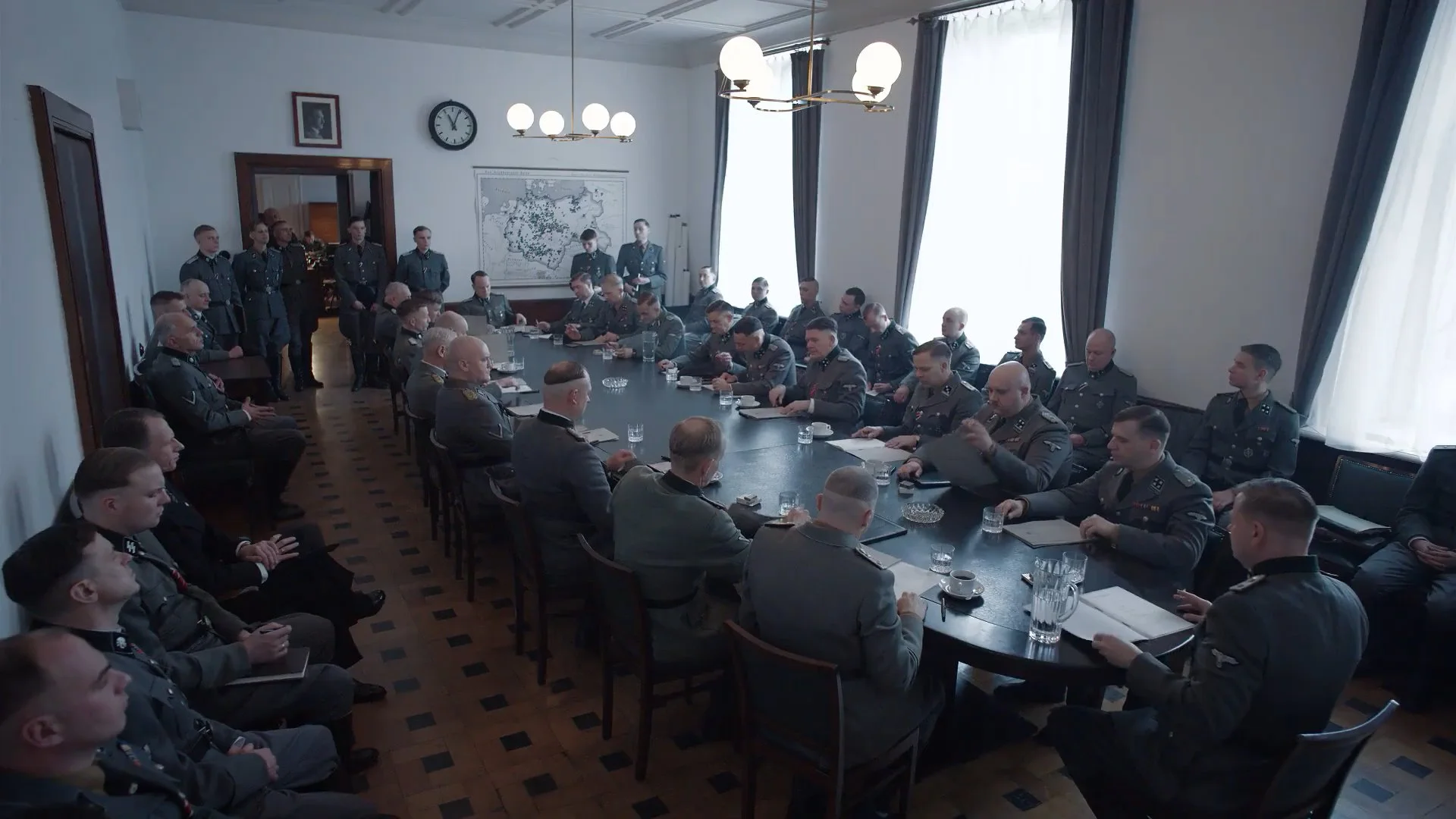Review: Glazer’s Distressing Fever Dream The Zone of Interest is Unforgettable
By News Editor David Twomey
Attempts of cinematic reflection of the horror of the Holocaust have been undertaken by many over the last few decades, and this year’s releases of One Life, Occupied City and The Zone of Interest shows that such attempts are not slowing.
Some of these movies stand on the podium of some of the greatest ever. Spielberg’s Schindler’s List remains as a standout, heart-wrenching classic, with the director’s first hand understanding of his family’s anguish painted in blood red in the black and white film, only reflected in the iconic coloured coat. Life is Beautiful, the Oscar winning Italian movie, immediately comes to mind for its essence of hope amongst the horror.
But many movies which have attempted to represent something which we will never get close to feeling fall flat; offering a hero against this monstrous villain in which my main feeling towards the performance is Oscar bait. Pulling emotion from the most gut wrenching atrocity in human history can be a perverse attempt at pulling emotion out of the viewer, and this critique with such movies is an issue which often leads me to disassociate from such attempts, despite them often catching the bait: out of the 65 American made movies about the Holocaust from 1945 to 2020, 21 have been nominated or won a total of 109 Oscars. When thinking about such films, I could only rattle off only a handful from memory. Despite the incredible success in the awards’ season, the longevity of many quickly fades despite the accolades of unprecedently powerful drama. Unlike such dramas, an inconvenient truth may be that a movie about the worst atrocity in history should be a nearly unbearable watch, leaving the viewer reeling in thought from the instant the credits roll and continue far beyond. The Zone of Interest, a potential future classic, has achieved this in the most remarkable fashion: domestic bliss.
This film follows the curt, career driven Auschwitz Commandant Rudolf Hoss (Christian Friedel) and his status-proud wife Hedwig (Sandra Huller) as they settle into their gorgeous family home. The garden wall of which is the outer walls of the Auschwitz. A movie about a happy family whose father is innovating the efficiency of Auschwitz on paper sounds calamitously distasteful, but British director Jonathan Glazer deftly positions the German-spoken plot as a prosaic perversion of the homestead. The relentless normality of the majority of the film is the heart of its movement; Hedwig could be any traditionalist housewife who is proud that her husband is climbing the ladder in his work. Hoss’ business calls regarding Auschwitz are so matter of fact and despondent of emotion that he could be working in a paper factory rather than a death camp. Their quiet, somewhat monotonous relationship subtly well performed by the lead actors grounds the film to impressively avoid any caricatures of evil. Yet fleeting moments of grappling with the scale of horror by some of the characters ensure us that knowledge of the atrocities is held in all, only grasped by few.
The Zone of Interest. Dir. Jonathon Glazer.
The movie often nearly resembles an animation of a 1950’s American dream postcard; the happy wife at home doting over her children, with the husband returning after a long day’s work announced by the giddy spring of the family’s dog who has a soft spot for the master of the house. It is the viewer’s knowledge of what is happening off-screen in the camp that immediately makes every scene, shot and sentence of this postcard utterly jarring. A Jewish servant timidly working in the background and the Nazi uniforms quickly distort the deceptively banal opening. The growing pulse of distance shrieks, gunshots and terror which are never seen by us, and seemingly not by the core family, broods a relentless dread which no visual representation of the terror ever has in cinema. Slowly, the face of family life contorts and writhes, with bursts of deep, droning, unevenly paced horns by Mica Levi and shots dissolving to loud, abrasive blood red distorts the idyllic domesticity into a fever dream. Sudden cuts to sequences of one of the daughters sneaking onto the camp to hide apples, shot in night vision, and accompanied by heavy breath and blares of deep synths, wonderfully continues the distortion. For the viewer, the intense experience is made all the more disturbing by the fact that within the parents, their dialogue continues to play like a typical family drama while the smokestacks bellow from behind the flower laden barbed-topped wall of the immaculate garden.
This portrayal of an Auschwitz Commandant and his family is a bold position for a movie about the Holocaust, a far distance away from the somewhat formulaic drama One Life also released this year (with Anthony Hopkins playing the powerful lead). Although pulling off the emotional ending well, One Life is akin to many such movies which I believe may not stand the test of time: predictable. This year, it is The Zone of Interest which has garnered the Oscar nominations, including Best Motion Picture of the Year and Best Achievement in Directing for Glazer. Not knowing where The Zone of Interest is heading, and perhaps expecting it to follow the typical formula for such a movie is crucial to its disturbing nature and creates a brutal experience quite unlike almost any in popular cinema. A nation of wilfully complicit are typically disregarded or played as an antagonist: placing us on the other side of the fence paints an incredibly uncomfortable yet important motion picture. Glazer masterfully pulls on the audience’s knowledge of what lies behind the wall to create a level of drama and dread which oftentimes isn’t visually even on the screen.
Perhaps the disconnect in many attempts to recreate the unimaginable suffering is that I always leave wondering how this could possibly happen, how could people ever do such a thing. The abhorrent evil of the Nazi’s genocide is disassociated from the viewer as we know that we would never do that, that no one ever would. But people did. The complicity of all, from those merely ‘following orders’, climbing the career ladder, and a wife dotingly resting her family on the laurels of the regime is an important monotony in understanding the drama of evil. Long, slow scenes of the Nazi family’s belief of perfect domesticity in The Zone of Interest is one of the most horrifying portrayals of the Holocaust in cinema. It is a distressing reality which many such movies fail to admit; that these monsters are humans.
The Zone of Interest. Dir. Jonathon Glazer.




